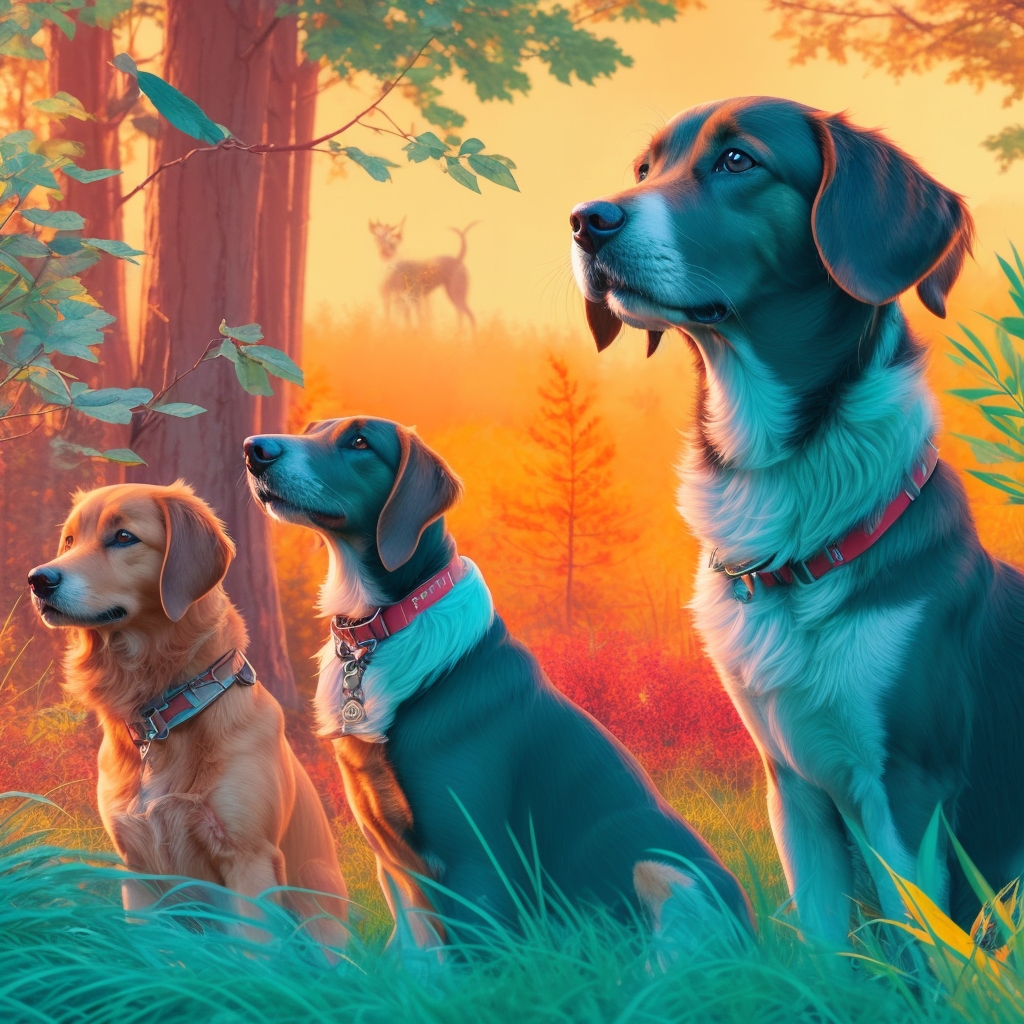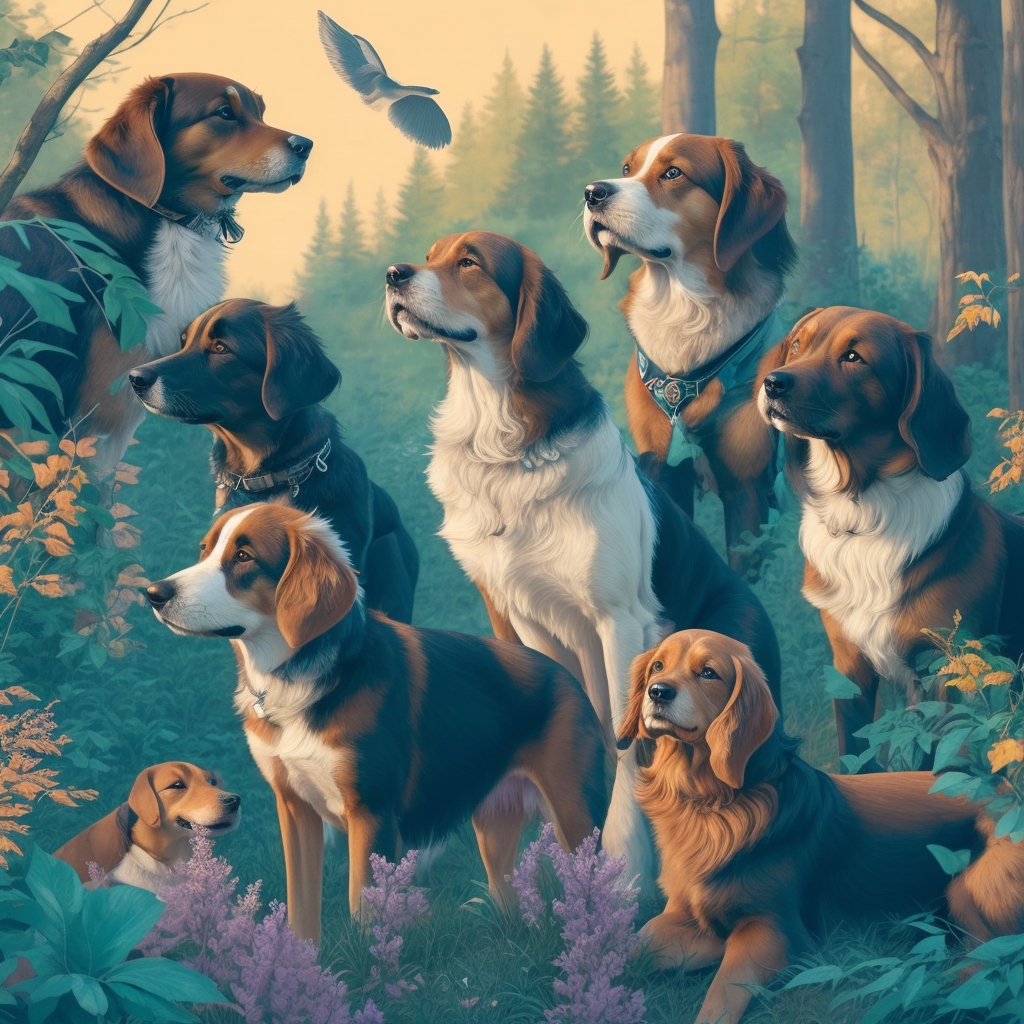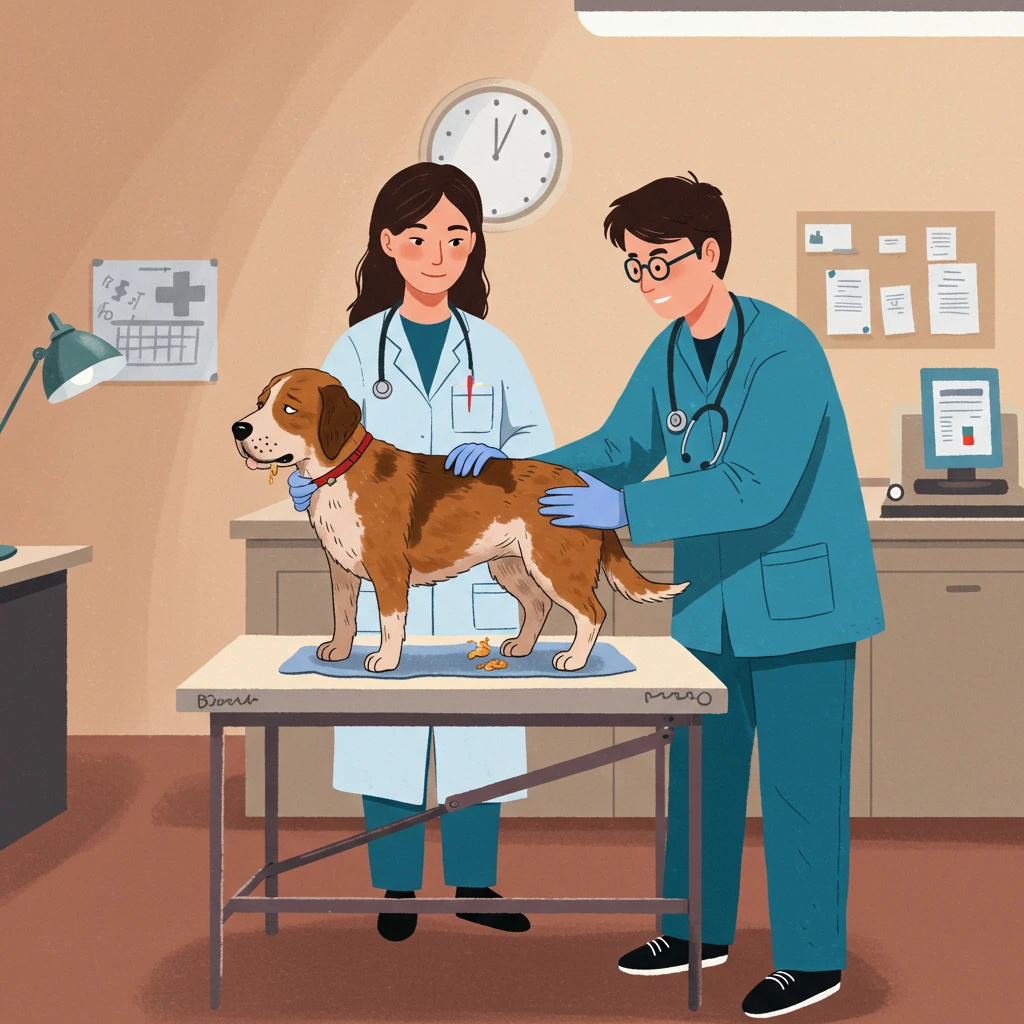Introduction
Hunting dogs are fascinating animals that have evolved alongside humans to fulfill specific roles in hunting. They are not just pets but also invaluable partners for hunters. This article will delve into what a hunting dog is, its different categories, characteristics, and best practices for their training and care.
Different Categories of Hunting Dogs
Hunting dogs are classified into several categories based on their aptitudes and the types of game they are meant to hunt.
1. Pointing Dogs
Pointing dogs, like the Setter or Braque, are used to locate game and mark its position by “pointing.” They freeze in position, indicating the presence of game to hunters.
Examples:
- English Setter: Known for its excellent nose and elegance, it’s particularly effective for bird hunting.
- German Shorthaired Pointer: Versatile and intelligent, it hunts equally well on land and in water.
2. Retrieving Dogs
These dogs, such as the Labrador Retriever or Golden Retriever, are specifically trained to retrieve downed game. They have a great ability to swim and move through varied terrains.
Examples:
- Labrador Retriever: Loved for its sociability and intelligence, it excels at retrieving game.
- Golden Retriever: Recognized for its gentle nature and ability to work with hunters, it’s often used for waterfowl.
3. Scent Hounds
Scent hounds, like the Basset Hound or Bloodhound, excel at following the scent trails of wounded game. Their exceptional sense of smell makes them particularly suited for this task.
Examples:
- Basset Hound: With its developed sense of smell, it’s often used to track wounded game.
- Bloodhound: Renowned for its ability to follow a trail over long distances, it’s often used in search missions.
4. Blood Tracking Dogs
These dogs specialize in finding and tracking wounded game. They possess an exceptional nose for detecting the smell of blood, making them indispensable in certain hunting situations.
Examples:
- Drahthaar: A robust dog, perfect for blood tracking and field game.
- Weimaraner: Known for its speed and keen nose, it’s often used in challenging environments.
Characteristics of Hunting Dogs
Hunting dogs share certain characteristics that make them suitable for their role. Here are some of the most important:
1. Developed Sense of Smell
Most hunting dogs have a superior sense of smell compared to other breeds. This allows them to detect game scents over long distances.
2. Agility and Endurance
Hunting dogs are often very active and need great endurance to follow game across varied terrain. They must be capable of running, jumping, and swimming.
3. Intelligence and Sociability
A good hunting dog must be intelligent and able to quickly understand commands. Sociability is also crucial, as they must work in harmony with their owner and other dogs.
4. Trainability
Hunting dogs must be able to learn specific skills and adapt to different environments.
Concrete Examples and Use Cases
Bird Hunting
During a bird hunt, an English Setter might be used to locate a group of pheasants in a field. Once it has marked the location, the hunter can approach quietly and take the shot.
Big Game Hunting
For big game hunting, a Drahthaar might be used to follow a blood trail after a deer has been downed. Thanks to its keen nose and endurance, it can find the wounded game even in difficult conditions.
Waterfowl Hunting
A Labrador Retriever is often used in waterfowl hunting, such as for ducks. After the shot, the hunter can send the dog into the water to retrieve the game.
Key Points and Best Practices
1. Choose the Right Breed
It’s crucial to choose a breed that matches your hunting needs. Each type of dog has its own skills and characteristics.
2. Adequate Training
Training is essential for a hunting dog. This includes socialization sessions, obedience training, and specific hunting exercises.
3. Regular Exercise
Hunting dogs need a lot of exercise. Regular walks, games, and simulated hunting activities are vital for maintaining their physical and mental health.
4. Veterinary Care
Regular veterinary check-ups are essential to ensure your dog’s health. This includes vaccinations, health checks, and parasite prevention.
5. Respect Regulations
Hunters must always respect local hunting laws and regulations. This includes adhering to hunting seasons, quotas, and hunting zones.
Conclusion
Hunting dogs play an essential role in the field of hunting, bringing valuable skills and assistance to hunters. By understanding the different categories of hunting dogs, their characteristics, and the best practices for their care and training, enthusiasts can maximize their hunting experience while ensuring the well-being of these magnificent animals. Whether you’re an experienced hunter or a novice, a well-trained hunting dog can transform your hunting experience into a memorable one.







